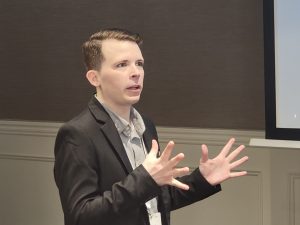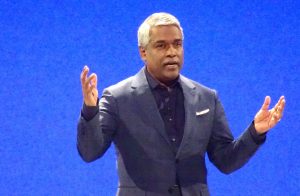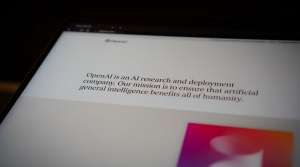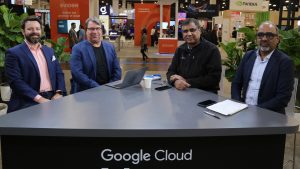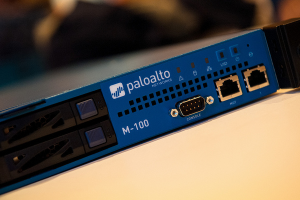Innovating Big Data governance: We asked the experts | #BigDataSV 2015
The annual BigDataSV 2015 event is underway in San Jose, CA, as theCUBE hosts SiliconANGLE and Wikibon analysts to discuss where the enterprise is allocating resources for real-time and accessibility applications for data analytics. The live discussion focuses on a new and exciting phase of the Big Data market and where the industry is headed.
SiliconANGLE also spoke to Big Data experts on new market innovations and forecasts, as well as outside-of-the-box data governance initiatives, including the use of artificial intelligence (AI) to effectively explain data and the use of advanced CRMs to record and map data flow.
Hadoop, Apache Spark will continue to drive innovation
.
Ping Li, General Partner, Accel Partners
It’s still very early. Despite all the activity and big conversations around Big Data, this is a technology cycle trend that’s going to last much more than five years, 10, 15 years. If you look at the relational database market and how long it took that ecosystem to get built and form, we’re talking decades. I think technology cycles happen faster now than they did in the past, but I still think we’re on the first, second, and third innings of this Big Data buildout.
If I look backwards, a lot of the innovation has been around the data management platforms, the Hadoops, the [Apache] Sparks and all the underlying technologies that I think will drive a lot of the next-generation platforms that applications get built on. And, frankly, I think if you look forward, the application ecosystem on these new platforms is still very early. It’s still very nascent. Whether it’s BI tools, ERP tools, CRM tools, all these different applications that we’ve used over the past decades to make our lives better from a business user productivity standpoint, I think they’re all going to get re-platformed and leveraged in order to deliver better experiences for users.
See Lee’s entire commentary in the video below, where he participated in theCUBE’s panel on Big Data trends during the BigDataSV event.
Hear from other data management experts below.
Data transparency isn’t data democracy
.
Stuart Frankel, CEO, Narrative Science Inc.
We built an automated narrative generation platform for the enterprise called Quill that mines data for meaning and insight, determines what’s important or interesting, and writes a natural language report that could be a 140-word snippet or a 15-page document. Quill can be applied to just about any kind of data and industry, and it’s highly flexible and revolutionary tech.
If you think about the investments made in data over the past 10 years, it’s primarily been around storing data, business intelligence (BI) applications to manipulate and analyze data, and huge investments in visualization tools like dashboards, graphs and charts to make it easier to understand data. But it’s pretty clear that investment today hasn’t resulted in good ROI, organizations making better business decisions or improving customer relations. There are exceptions, but in large part the promise of Big Data has not been met.
Big Data initiatives are moving from IT to the business side of organizations as they really start to look at how to get ROI for biz initiatives. There are all these tools to hunt, discover and visualize data, but no tools to eliminate the large part of manual processes. Think about the enormity of time and money spent by employees in front of computers looking at spreadsheets and other proprietary data source they’re writing up a narrative and sending it off to a customer, boss or peer group. This is happening in every organization across every industry — becoming a bigger part of their day because there’s more data.
I want to talk about democratizing data. We see this in government all the time — look at the data that’s available from cities and municipalities. There’s a big trend around data transparencies. The more data you give to regular citizens without the time to analyze it, you’re not democratizing it at all. It’s a meritocracy. Whether that’s government or in the enterprise, more data doesn’t necessarily mean you’re being more transparent.
Quill puts the customer in control of data output. One concern with data governance is who has access to data, and that varies by organization. More importantly, what are users doing with that data and how are they communicating around it?
The mix of cloud types will have to connect
.
Larry Augustin, CEO, SugarCRM, Inc.
Everything our clients do in their businesses integrates or flows through what we do at SugarCRM. Whether it’s starting out with marketing automation, as those leads come in they go somewhere (a CRM system). From within Sugar, the company is going to build out and track that full customer experience. How did they find that person, connect with them, interact online or with a sales person? That data sits inside Sugar. And through the selling cycle, through post-sale and through product delivery, all those interactions are recorded and mapped with Sugar.
There’s a huge opportunity for analytics, which we offer, but we also partner with other vendors like IBM and Cognos to provide analytics to the customer. There’s another angle to that — data privacy. Because we have all that information about the customer, one of the things we’ve done is created a highly secure cloud service. But we give customers the option of installing the system on premise. You hear about hybrid cloud — we have a lot of customers concerned with data privacy, and often data analysis is best done inside the firewall, especially as we go international.
We built a model where we can partner with a company in another country to get the benefits of an SaaS service but without the issues of the data sitting outside of their control. I don’t see the world going to one cloud. There will be a mix of on-premise, private and public clouds, and they’ll all have to connect.
A message from John Furrier, co-founder of SiliconANGLE:
Your vote of support is important to us and it helps us keep the content FREE.
One click below supports our mission to provide free, deep, and relevant content.
Join our community on YouTube
Join the community that includes more than 15,000 #CubeAlumni experts, including Amazon.com CEO Andy Jassy, Dell Technologies founder and CEO Michael Dell, Intel CEO Pat Gelsinger, and many more luminaries and experts.
THANK YOU









